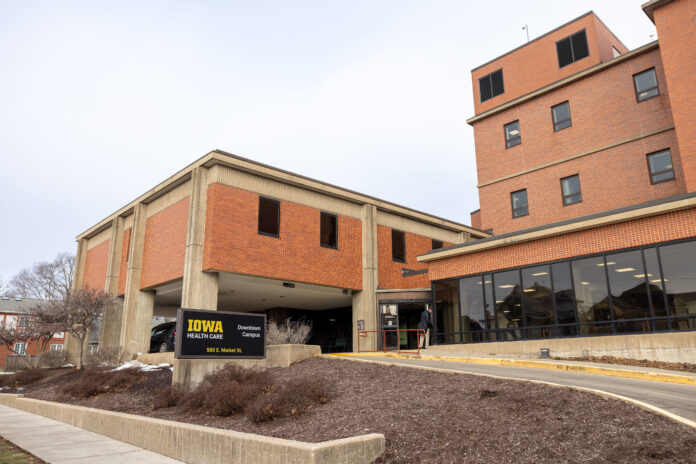
In keeping with its agreement prior to the acquisition of Mercy Iowa City, the University of Iowa Health Care is seeking $25 million in upgrades for its Downtown Campus. At the Iowa Board of Regents meeting Sept. 18, the system’s CEO Brad Haws outlined needed updates to bring its Medical Center Downtown Campus – formerly […]
Already a subscriber? Log in
Want to Read More?
Get immediate, unlimited access to all subscriber content and much more.
Learn more in our subscriber FAQ.
- Unparalleled business coverage of the Iowa City / Cedar Rapids corridor.
- Immediate access to subscriber-only content on our website.
- 26 issues per year delivered digitally, in print or both.
- Support locally owned and operated journalism.
Do you want to read and share this article without a paywall?
Click here to purchase a paywall bypass linkIn keeping with its agreement prior to the acquisition of Mercy Iowa City, the University of Iowa Health Care is seeking $25 million in upgrades for its Downtown Campus.
At the Iowa Board of Regents meeting Sept. 18, the system’s CEO Brad Haws outlined needed updates to bring its Medical Center Downtown Campus – formerly Mercy Iowa City – up to UI Health Care’s required standards.
A facilities assessment performed by external companies helped the University identify project priorities, among them a new roof, upgraded radiology equipment and parking structures.
“We believe that these projects that we need to do more formal planning for will enable us to go in the next level in terms of providing high quality care…without these investments and without this planning, we will not be able to move forward,” he said, adding that UI Health Care will “far exceed” the requested amount in terms of investments in both the facility and community.
Leveraging feedback from providers at both the Downtown and University campuses, the University has pinpointed areas of "immediate impact" that are now at the forefront of its priorities.
Currently, the Downtown Campus is utilizing only four to four-and-a-half of its 14 operating rooms, said Mr. Haws, “but to use all 14, we need to improve the lighting, the monitors that are in there, and the capacity that (the ORs) have for state of the art equipment that we would like to use there.”
Noting constraints with the operating rooms at the University campus, Mr. Haws asserted the situation was a “win-win” for both campuses in that it will enable the University to expand capacity on-site while also utilizing and providing care in alternative settings.
Of note is the University’s situation with obstetrics and midwifery, represented by one faculty group and providing care for both locations.
“Two weekends ago, we were full on the University campus,” said Mr. Haws, and between the two campuses, 85 infants were delivered in one weekend.
Regent Greta Rouse raised concerns about what would happen and what alternatives are available if the University’s OB ward reaches full capacity.
In cases of capacity issues, said Mr. Haws, elective inductions or scheduled deliveries may be delayed, which can be frustrating for families.
“We have not gotten to a situation yet where we've had to permanently say, ‘you cannot deliver here.’ But we do prioritize the more sick, and the more acute, and the more needy deliveries before we do the elective care,” he said.
Additional capacity is critical for providing care to mothers who depend on the University, said Mr. Haws, particularly as many local OB units either close or restrict access to only healthy patients.
“We're really looking forward to our ability to do that, because otherwise we would not have the capacity to treat all the mothers that are now depending on us for care,” he said.
The state of affairs surrounding OB/GYN care in the state of Iowa has been bleak. A Common Sense Institute report published in August found that 62 Iowa counties are without an OB-GYN practitioner. This troubling trend has been on the rise since 2000, having seen at least 41 Iowa hospitals shutter their labor and delivery units since then.
According to Mr. Haws, UI Health Care is exploring the possibility of adding the following services to the Downtown location:
- Obstetrics/midwifery
- Family medicine
- Gastrointestinal endoscopy
- Operating room utilization
- Heart and vascular services
- Sleep disorders
- Oncology services
- Custodial care




